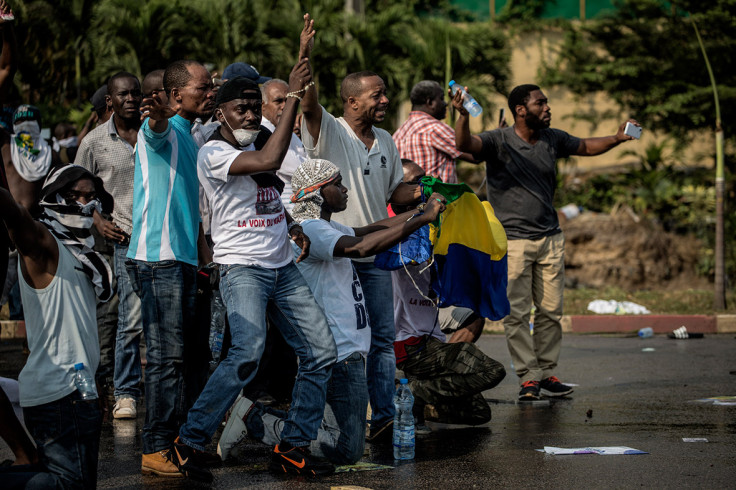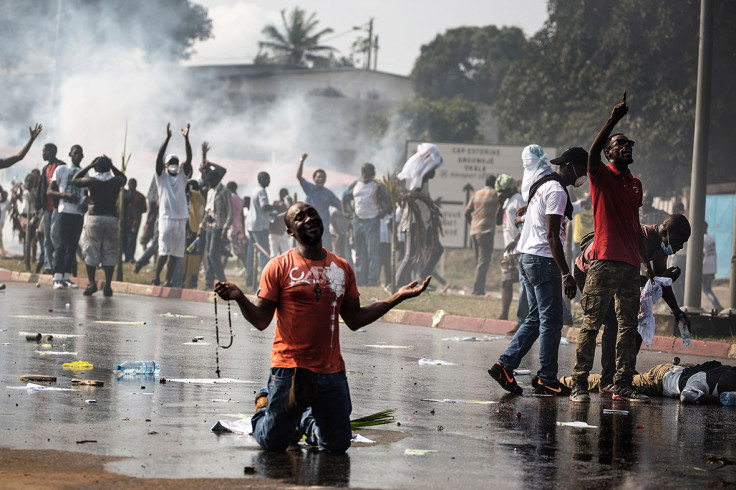France urges recount of votes in Gabon after days of rioting
Seven dead following contested re-election of President Ali Bongo.

Days of deadly rioting have followed the controversial re-election of President Ali Bongo in Gabon on Wednesday (31 August). Bongo, whose family has been in power for nearly 50 years in the African nation, was declared president until 2025. France has urged a recount.
Gunfire was heard in capital Libreville on Thursday following opposition candidate Jean Ping's claims he was cheated of victory. He accused the incumbent leader of vote rigging to secure a win.
Ping's supporters held nationwide protests and have called for new demonstrations on 6 September. Bongo's regime accused Ping's supporters of looting and setting fire to the parliament building.
Gabon confirmed three people had been killed and 195 injured, 67 from security forces, following the deadly clashes in the capital as frustrated citizens took to the streets last week to call for the 27 August poll result to be cancelled. AFP news agency, however, reported seven dead including a police officer, and some 1,000 arrested.
Opposition leader's call for help
The opposition's party HQ was bombed by a presidential guard helicopter, killing two people, prompting him to appeal to the international community as well as Gabon's former colonial power, France, for help.
Allegations of vote rigging in Gabon
The official results said that Bongo won 49.8% of the vote while Ping won 48.2%. This would represent a margin of 5,594 votes, or 1.57 percentage points. However, the August polls have been marred by allegations of fraud.
- Exceptionally high turnout figures: Official results said there was a 99.93% turnout with 95% voting for Ali Bongo in the head of state's home region in contrast to the national turnout of 59% (regional turnout was between 45% and 71%, according to Gabon's interior ministry).
- More voters than listed in the electoral roll: The total number of voters in Bongo's region included several thousand more than actually live in the province, Ping alleged.
- Late opening of polling stations
-Last minute changes to voting procedures
"I'm in Gabon where the current president, Ali Bongo, is using our national security forces — armed with valuable military weaponry provided by the US to fight terrorism — against our own people. In the reports I've heard, at least a dozen are dead — probably more — and hundreds wounded; thousands have been arrested, including 23 of my campaign workers," Ping wrote in an editorial published by the New York Times on 2 September.
"I had a double-digit lead across the country, and Ali Bongo got nervous. These results were not surprising because the two other major challengers withdrew from the race before the election and backed me as the unified opposition candidate against Mr. Bongo. The votes — 373,310 in all — were collected, and preliminary counts from eight of nine provinces showed me with a solid lead as late as Tuesday," Ping continued.
French MP calls for vote recount
Pressure mounted further on Bongo over his disputed victory when justice minister Seraphin Moundounga, a deputy prime minister, resigned late Monday (5 September). He urged for "a recount of the votes, polling station by polling station, and registry by registry".
The European Union and the US, meanwhile, have demanded for full breakdowns of results to be published by individual polling stations across the country, with US state department spokesman John Kirby saying the international community was closely monitoring the events and that "appropriate actions" were being examined.
French Prime Minister Manuel Valls has also called for a recount of the votes.
"There are arguments and some doubts. European observers in the country have already made criticisms on the basis of objectives. It would be wise to do a recount," Valls told RTL radio station. "There needs to be a clear electoral process."
France has close economic and political ties with the oil-rich country, which gained independence in 1960.

© Copyright IBTimes 2024. All rights reserved.






